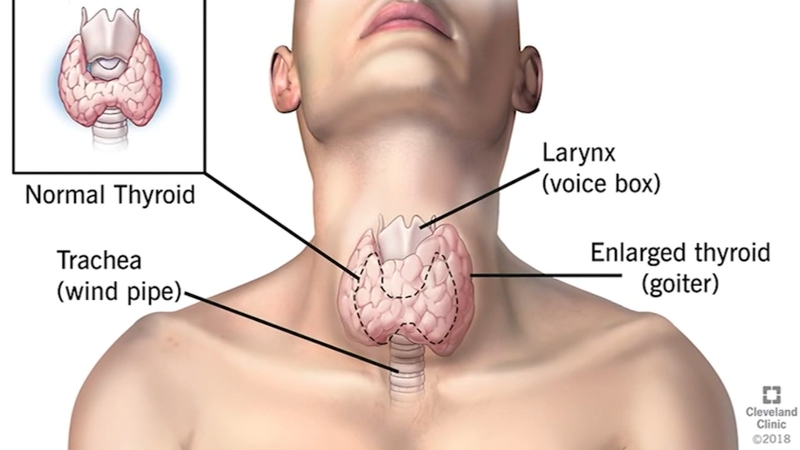Thyroid Problems
Through the hormones it produces, the thyroid gland influences almost all of the metabolic processes in your body. Thyroid disorders can range from a small, harmless goiter (enlarged gland) that needs no treatment to life-threatening cancer. The most common thyroid problems involve abnormal production of thyroid hormones.
Too much thyroid hormone results in a condition known as hyperthyroidism. Insufficient hormone production leads to hypothyroidism.Although the effects can be unpleasant or uncomfortable, most thyroid problems can be managed well if properly diagnosed and treated.

Causes
- Graves’ disease: The production of too much thyroid hormone
- Toxic adenomas: Nodules develop in the thyroid gland and begin to secrete thyroid hormones, upsetting the body’s chemical balance; some goiters may contain several of these nodules
- Subacute thyroiditis: Inflammation of the thyroid that causes the gland to “leak” excess hormones, resulting in temporary hyperthyroidism that generally lasts a few weeks but may persist for months
- Pituitary gland malfunctions or cancerous growths in the thyroid gland: Although rare, hyperthyroidism can also develop from these causes.
Causes of Hypothyroidism include:
- Hashimoto’s thyroiditis : In this autoimmune disorder, the body attacks thyroid tissue. The tissue eventually dies and stops producing hormones
- Removal of the thyroid gland: The thyroid may have been surgically removed or chemically destroyed
- Exposure to excessive amounts of iodide: Cold and sinus medicines, the heart medicine amiodarone, or certain contrast dyes given before some X-rays may expose you to too much iodine.You may be at greater risk for developing hypothyroidism if you have had thyroid problems in the past
- Lithium: This drug has also been implicated as a cause of hypothyroidism.

